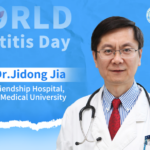
Editor's Note: After the failure of TKI therapy in HER2-positive breast cancer, would you prefer an "ADC" or "HP+" regimen? At the Northern Salon of the 2024 Summer Breast Cancer Forum, during the "In-Depth Analysis" segment, Dr. Xuening Ji from Affiliated Zhongshan Hospital of Dalian University and Dr. Chunfang Hao from Tianjin Cancer Hospital shared their perspectives. Professor Ji advocated for the ADC approach, while Professor Hao supported the "HP+" regimen. Following the session Oncology frontier invited both experts to elaborate on their viewpoints.Presenting Views and Analyzing Reasons
Dr. Xuening Ji: ADC Drugs as the First Choice
My view is that after TKI therapy failure, ADC drugs should be the first choice, based on the following three reasons:
- Unique Mechanism of Action: From a resistance standpoint, PI3KCA, erbB2 mutations, or PTEN loss can lead to continuous activation of the PAM pathway, resulting in resistance to trastuzumab and TKI therapy. ADCs can overcome this resistance.
- Treatment Efficacy: Studies such as DB-01, DB-02, DB-03, and TH3RESA suggest that patients who fail TKI therapy can benefit from DS-8201 or T-DM1. Moreover, DS-8201 has shown good efficacy in treating special metastases, such as brain metastases. Combined analyses of DB-01, DB-02, and DB-03, real-world studies, and meta-analyses have all confirmed the efficacy of DS-8201.
- Safety: Data from T-DM1 and DS-8201 studies show that the adverse effects of ADCs are manageable, allowing patients to achieve long-term stable disease control.
Dr. Chunfang Hao: Preference for the “HP+” Regimen
My view is that after TKI therapy failure, the HP combination regimen should be the preferred choice. In previous clinical studies, it was rare to see patients receiving TKI therapy directly without first using the HP regimen. However, today, we see that combinations of large and small molecules are already recommended as first-choice treatments in clinical guidelines, both in the neoadjuvant stage and in first-line treatment for advanced disease. Therefore, we anticipate encountering more patients who have not been treated with pertuzumab after failing H and TKI therapies. Should these patients be treated with ADCs or the HP combination regimen? I will outline my reasoning across seven aspects to provide an answer.
- Clinical Evidence: Real-world studies conducted by the Chinese PLA General Hospital indicate that after TKI therapy failure, the PFS and clinical benefit of new ADC drugs and HP combination chemotherapy are similar, with the HP combination showing slightly longer benefits.
- Mechanism: HP offers better complete inhibition of the HER2 target, along with ADCC and CDC effects, providing patients with better and longer-lasting survival benefits.
- Adverse Event Management: HP dual-targeted combination therapy has ample clinical application experience, with relatively mild adverse effects, whereas ADCs require careful monitoring for interstitial pneumonia, ocular toxicity, and the clinical evaluation of elderly patients.
- Quality of Life: The HP dual-targeted (subcutaneous formulation) combination therapy offers patients a convenient option with diverse combinations.
- Patient Characteristics: Patients who may prefer the HP regimen after TKI therapy failure typically include: Those who were previously sensitive to H and TKI therapy but have not yet received pertuzumab. Elderly patients, especially those with comorbidities. Patients with HER2-positive or triple-positive breast cancer, where HP combined with endocrine therapy remains a highly effective treatment choice, extending the time to chemotherapy. Additionally, the HP regimen can be combined with CDK4/6 inhibitors, providing patients with more treatment options.
- Special Populations: Although ADCs have shown good control over brain metastases, current evidence suggests that intrathecal HP injections are also effective in managing leptomeningeal metastases. For patients with PAM pathway abnormalities, HP combined with PAM pathway inhibitors, along with endocrine therapy or chemotherapy, remains effective.
- Overall Strategy: Using HP dual-targeted therapy first, followed by ADCs, can still result in significant OS improvements for patients. However, using ADCs first, followed by HP combination therapy, may reduce survival benefits.
Debating for Knowledge, Pursuing New Frontiers
Dr. Xuening Ji: In the first-line standard treatment for HER2-positive advanced breast cancer, the combination of trastuzumab, pyrotinib, and capecitabine is a first-line treatment that aligns with China’s national conditions. However, after first-line treatment, there are two situations: sensitivity to TKI therapy or resistance to TKI combined with trastuzumab. After first-line treatment failure, should we choose ADCs or the HP dual-targeted therapy? What is your view on re-challenging with HP in such cases?
Dr. Chunfang Hao: Indeed, the optimal treatment regimen for each patient must be determined in clinical practice. If a patient experiences rapid disease progression or has a high tumor burden during first-line H+TKI therapy, I would still prioritize ADC drugs. However, if a patient had substantial benefits from previous first-line treatment or has a low tumor burden, there remains an opportunity for HP combined with other treatments in patients who have not yet received pertuzumab.
Dr. Chunfang Hao: For a 70-year-old patient with triple-positive breast cancer, if their tumor burden is not significant and they have failed H and TKI therapy, would you prefer the HP combination regimen or ADCs?
Dr. Xuening Ji: First, we need to comprehensively assess the patient. Age does not necessarily mean that organ function cannot tolerate ADCs, and in clinical practice, we have strategies like weekly ADC monotherapy. In the DB-03 study involving triple-positive breast cancer patients, ADCs still showed effective results compared to T-DM1. Therefore, in clinical practice, the choice should be based on each patient’s specific circumstances, including their previous treatment history, family financial situation, and pharmacoeconomic considerations, to provide a precise treatment plan.
Vote
After TKI therapy failure in HER2-positive breast cancer, do you prefer the “ADC” or “HP+” regimen? (Single choice)
- ADC drugs
- HP+ regimen
- No preference

Dr. Xuening Ji
- Deputy Director, Oncology Department 1, Affiliated Zhongshan Hospital of Dalian University
- PhD, Professor, Chief Physician, Master’s Supervisor
- Member, CSCO Breast Cancer Expert Committee
- Vice Chairman, Tumor Thermotherapy and Spinal Tumor Thermotherapy Committee, Chinese Anti-Cancer Association
- Member, Integrative Tumor Medicine Committee, Chinese Anti-Cancer Association
- Standing Committee Member, Tumor Metastasis Committee, China Medical Education Association
- Standing Committee Member, Breast Cancer Group, Precision Medicine and Tumor MDT Committee, Chinese Research Hospital Association
- Member, Oncology Branch, Liaoning Medical Association
- Standing Committee Member, Breast Cancer Committee, Liaoning Anti-Cancer Association
- Member, Chemotherapy Committee, Liaoning Anti-Cancer Association

Dr. Chunfang Hao
- MD, Master’s Supervisor
- Director, Breast Medicine Department, Tianjin Cancer Hospital, Airport Hospital
- Member, CSCO Breast Cancer Expert Committee
- Member, Breast Cancer Committee, Chinese Anti-Cancer Association
- Member, Tumor Clinical Chemotherapy Committee, Chinese Anti-Cancer Association
- Member, Tumor Prevention and Treatment Science Committee, Chinese Anti-Cancer Association
- Standing Committee Member, Breast Specialty Committee, China Women Doctors Association
- Vice Chairman, Youth Committee, Breast Cancer Prevention Committee, Beijing Cancer Prevention Society
- Standing Committee Member, Individualized Treatment and MDT Committee, Beijing Cancer Prevention Society


